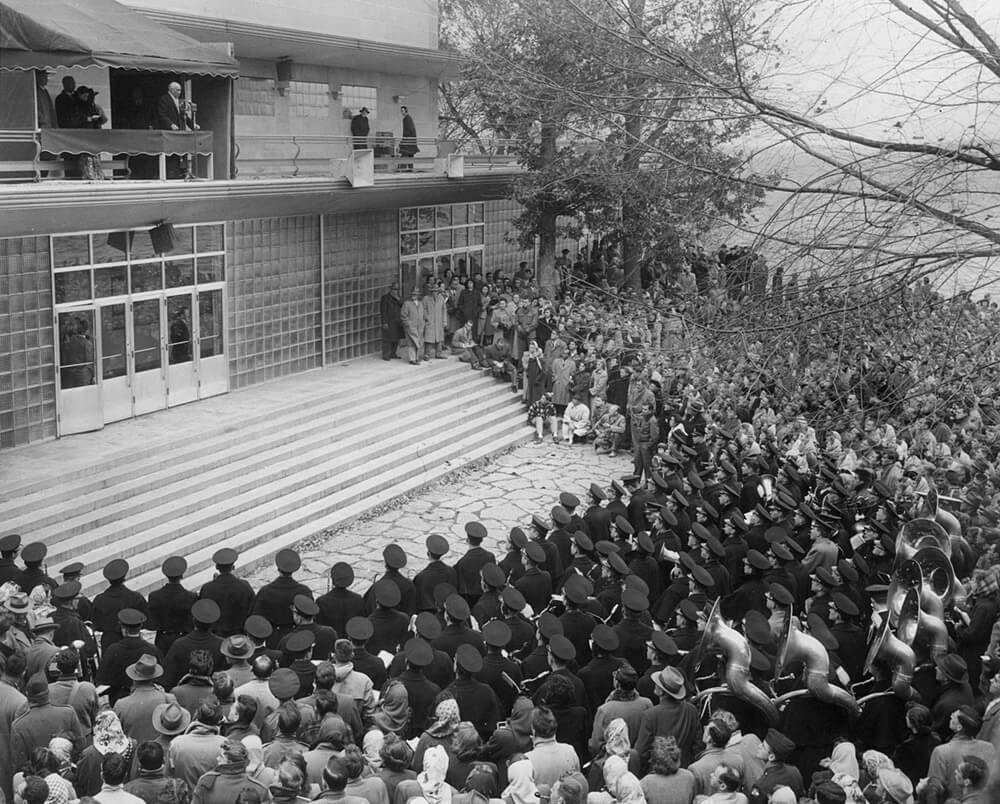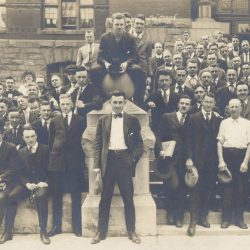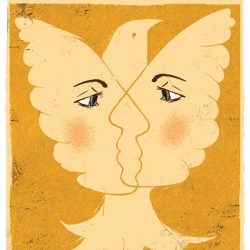India ink
A self-described student, India’s Prime Minister Jawaharlal Nehru was pleased to end his three-and-a-half week U.S. tour with a talk before a scholarly audience at the UW on November 4, 1949. And the university was equally pleased, welcoming the leader of India’s struggle for independence with a full diplomatic affair.
A ceremony at the Union Theater fêted Nehru. (That’s him on the balcony, in the upper left corner of this picture.) Accompanied by his daughter, India’s future prime minister Indira Gandhi, he celebrated the example of political nonviolence inspired by Mahatma Mohandas Gandhi.
Fifty Indian students led the first-ever campus performance of India’s national anthem, and WHA and radio networks broadcast the program across Wisconsin and Michigan.
UW President E. B. Fred declared Nehru’s visit memorable for its scholarship and exchange with a nation where “the true aristocrat is a man of learning.” In official state greetings, Governor Oscar Rennebohm found similarities between Wisconsin and India. “We know the meaning of Gandhi’s noble work, the resolved way of peace,” he said. “We, too, are a heterogeneous people, with different mother tongues, religions, and cultures. Like you, we, too, are learning to dwell together in peace.”
At a time when conflict among nations can be blood soaked (see “The Warlord’s Biographer” on page 34), and resolving it requires innovation in many forms, the UW’s Rikhil Bhavnani is among those revisiting Gandhi’s legacy. The assistant professor of political science, along with research colleague Saumitra Jha at Stanford University, is finding that countries may still have much to learn from what they call “Gandhi’s Gift.”
In 1949, Nehru’s message — “Means are always as important as the ends” — came through a wide-ranging address. “[With] all the world its neighbor, no country can be indifferent to what happens at the other end of the world,” he said. “[Pure] indifference and isolation are completely past and over. … We realize that in India. There is no way left except world cooperation.”
Published in the Spring 2015 issue




Comments
No comments posted yet.